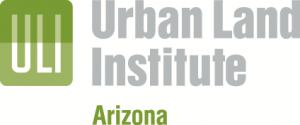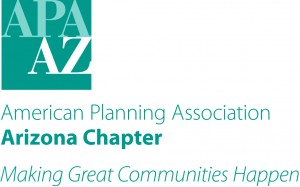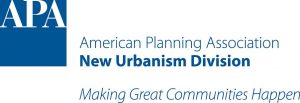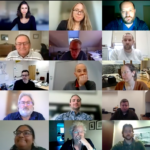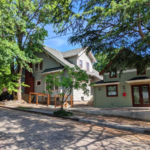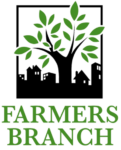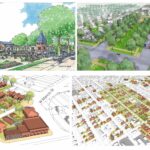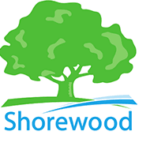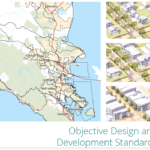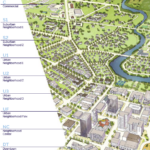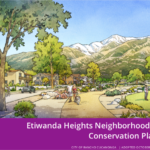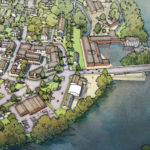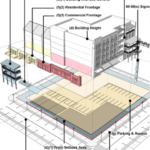FBC 201: Placemaking with Form-Based Codes
Summary
FBC 201: Placemaking With Form-Based Codes
Thursday and Friday, September 29-30, 2016
Calvin C. Goode Building
251 W. Washington St.
Conference Room 10E
Phoenix, AZ 85003
United States
Approval pending for 16 AICP CM, AIA CES, CNU-A
This two-day course provides an in-depth understanding of how to guide good urban form through a regulatory framework. Participants learn to create form-based codes by drawing upon an area’s best features to conceptualize the urban elements that shape public space and community character. Instructors delve into the basics of urban form, combining lecture and case studies with “hands-on” participatory exercises in the essential tasks of coding.
The course uses presentations and interactive discussions to enhance participants’ knowledge of urban design at the scale of the building and building types, the street and street types, the block and the neighborhood. Participants work together to apply theory and practice as they create a vision and regulatory elements of plan for an illustrative area. Instructors and panelists discuss unexpected design challenges, and explore design possibilities for greenfield sites, redevelopment areas, already built-out communities and regional plans.
Click the tabs above to see agenda and instructors.
NOTE: The one-day class: ABCs of Form-Based Codes — or FBC 101 on-line — is prerequisite for this class.
Lodging
Hyatt Regency Phoenix
122 North Second Street
Phoenix, Arizona, 85004
Phone: 602.252.1234
Sheraton Grand Phoenix
340 North 3rd Street
Phoenix, AZ, 85004
Phone: 602.262.2500
Rodeway Inn Downtown Phoenix
402 West Van Buren Street
Phoenix, AZ, 85003
Phone: 602.254.7247
Agenda
The following preliminary agenda is subject to change.
A final agenda will be ready one week before the start of the class.
DAY ONE — Thursday, September 29, 2016
| 8:00 – 8:15 AM | Light Breakfast and Registration |
| 8:15 – 8:30 AM | Introductory Discussion — Dan Parolek and Class Participants Introduction of staff. Why form matters. Participants’ objectives and desired takeaways. Coding issues in your community. |
| 8:30 – 9:30 AM | FBC 101 Review —Tony Perez What FBCs are designed to do, why they’re different from conventional codes and what information they need to be effective (30 minutes), followed by a 30-minute discussion. |
| 9:30 – 10:30 AM | Urban Form Basics: The Urban Neighborhood — Dan Parolek Walkable neighborhoods are the keystone to vibrant and economically and physically healthy communities whether they are new communities or revitalized neighborhoods within towns and cities. They also are the basic building block of towns and cities. What are the physical characteristics of these places that should be reinforced in good planning and zoning and how has conventional zoning fallen short? And why is it important to classify suburban neighborhoods from walkable neighborhoods in regards to zoning? This session will look at the components of a walkable neighborhood starting with the center/main street which provides the social and physical center for a neighborhood, will then look at the interior and edges and how great neighborhoods provide a mix of housing choices as well as a hierarchy in their structure, look at the role of mixing uses at various levels within these different sub areas, how do neighborhoods work together to define a city, and how the network and hierarchy of streets reinforces the quality of the place. |
| 10:30 – 10:45 AM | Break |
| 10:45 – 11:30 AM | Urban Form Basics: Site/Building Design Principles and Building Types — Tony Perez How buildings shape the public streetscape and private open space. The palette of building types that make up a city. Types of building choices that work in different neighborhoods and cities. How to use building type alternatives to respond to site constraints and community features (25 minutes). Discussion and questions about Building Types, when to use them, what’s important (20 minutes). |
| 11:30 AM – 12:45 PM | Lessons Learned from Form-Based Code Applications in Arizona — Roger Eastman, Jeff McVay and Alan Stephenson Flagstaff, Mesa and Phoenix all are at the forefront of form-based code application in Arizona having FBCs in place for several years. Where did they get applied? What results have the codes created? What are some lessons learned? |
| 12:45 – 1:45 PM | Lunch on Your Own/ Informal Discussion with Instructors |
| 1:45 – 3:00 PM | Using an FBC: How and Why It’s Different than a Use-Based Code — Tony Perez Using a variety of sites that participants can choose, apply the standards of your existing zoning code (20 minutes) and then apply the FBC standards (55 minutes) to understand the features of a good FBC and how it inherently deals with various topics. |
| 3:00 – 3:15 PM | Break |
| 3:15 – 4:15 PM | Coding for Missing Middle Housing and Diverse Housing Types — Dan Parolek Is your zoning ready for your community or communities you are working in compete economically by providing high-quality, walkable urban living options? This session gives and overview of missing middle housing types, their characteristics, and how to use form-based coding to remove barriers and effectively regulate these types. |
| 4:15 – 5:00 PM | Discussion: What Have You Learned That You Can Apply to Your Community or Communities That You are Working In? What Questions Do You Have? — All Instructors and Participants |
| 5:00 PM | End of Day One |
DAY TWO — Friday, September 30, 2016
| 8:15 – 9:15 AM | Focus/Advanced Techniques Used for FBC Creation That You Don’t Typically Hear About — Dan Parolek and Roger Eastman Micro scale analysis, illustrations to tell the coding story, graphic code diagnosis, hybrid codes, how to make form-based zones that can apply to more than one project area. |
| 9:15 – 10:00 AM | 201-Level: Misconceptions and Misunderstandings — Tony Perez The following questions will be addressed in this session: What is an effective hybrid code? Why do some planners think FBCs are too complicated? Is design review eliminated with an FBC? Is placemaking and form-based coding a luxury your city cannot afford? (25 minutes). Discussion, questions and concerns from participant’s experience in working with form-based codes. (20 minutes) |
| 10:00 – 10:15 AM | Break |
| 10:15 – 11:15 AM | First Urban Design Example Projects: Street/Block/ Building Scale — Dan Parolek This session will use the Petaluma, Calif., SMART Station Area Master Plan to show how the scale of street/block/building scale and the understanding of these scales tie into creating an effective master plan and ultimately and effective form-based code. This case study is in a small town, at the edge of a downtown, will have transit-oriented development and has a brownfield component, so it covers many aspects that may be applicable to projects in your communities. |
| 11:15 AM – 12:00 PM | Translating the Community Vision into a Regulatory Framework — Tony Perez How form-based regulations are applied to implement a community vision through a Regulating Plan and standards. |
| 12:00 – 1:15 PM | Lunch on Your Own/ Informal Discussion with Instructors |
| 1:15 – 2:15 PM | Creating Better Classifications of Different “Form-Based” Zoning Approaches and Understanding What to Ask For or What You are Getting from a Consultant — Dan Parolek This session is adapted from two “Zoning Practice” articles that gave an overview of the different approaches to integrating “form-based” standards into your zoning, giving them different classifications so they are not confused, comparing their effectiveness, and enabling you to understand what you are getting from a consultant or delivering to a public client. |
| 2:15 – 3:00 PM | Preparing Your Decision Makers for Adoption of an FBC — Roger Eastman This session will use the experience of the city of Flagstaff’s process for adopting an FBC to discuss why it is important to lay a solid foundation in a community to understand what an FBC is and is not, especially as many community residents, including city officials, may not have heard about FBCs. Ideas on how this can be achieved at relatively low cost to the community will be provided, as well as a review of various outreach tools and techniques that can be used to accomplish this goal. Also, a guide on how to deal with the legal implications of Arizona Proposition 207 (now ARS §12-1134) will be discussed in reference to the adoption of an FBC. |
| 3:00 – 3:15 PM | Break |
| 3:15 – 4:15 PM | Using Charrettes in Diverse Form-Based Coding Applications — Dan Parolek The charrette methodology has been adapted to effectively meet the needs of a wide variety of planning and coding projects ranging from site-specific applications to citywide land development code updates. What are the similarities and differences in these processes? When is the coding process should it be done? What is a typical agenda? What should the products be? What are the lessons learned? How can you adapt the charrette to meet your community needs? |
| 4:15 – 4:45 PM | Summary and Wrapup/Questions and Answers — All Instructors and Participants |
| 4:45 PM | End of Course |
Instructors
FBCI draws upon national experts, including urban designers and planners with broad experience in all aspects of form-based coding.
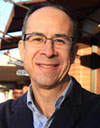 Tony Perez has over 25 years of public and private sector experience with a focus on organizing and writing specific plans and master plans. In the past 12 years, Tony has prepared or co-authored over thirty form-based codes. His recent work in California includes the Fremont Center City Code, the Fresno Downtown Code, the Vallejo Citywide Code, and the Tehachapi Citywide Code. He also worked on Santa Ana’s Transit Zoning Code, which won the 2012 Driehaus Form-Based Codes Award. Prior to entering the private sector in 2000, Tony served as city planner for several California cities, in roles that included redevelopment staff for three main street revitalization projects. Tony is fluent in urban design and architecture, enabling him to extract information and direction out of a community vision and to ask important questions of designers and stakeholders in the process.
Tony Perez has over 25 years of public and private sector experience with a focus on organizing and writing specific plans and master plans. In the past 12 years, Tony has prepared or co-authored over thirty form-based codes. His recent work in California includes the Fremont Center City Code, the Fresno Downtown Code, the Vallejo Citywide Code, and the Tehachapi Citywide Code. He also worked on Santa Ana’s Transit Zoning Code, which won the 2012 Driehaus Form-Based Codes Award. Prior to entering the private sector in 2000, Tony served as city planner for several California cities, in roles that included redevelopment staff for three main street revitalization projects. Tony is fluent in urban design and architecture, enabling him to extract information and direction out of a community vision and to ask important questions of designers and stakeholders in the process.
 Dan Parolek is a practicing architect and urbanist whose passion is creating and revitalizing sustainable urban places. Dan is founding principal of Opticos Design, Inc. in Berkeley, Calif., a leading firm in the field of form-based coding with a growing list of successful codes for communities. He is a founding board member of the Form-Based Codes Institute and coauthor of the first comprehensive book on form-based codes, entitled Form-Based Codes: A Guide for Planners, Urban Designers, Municipalities, and Developers (John Wiley & Sons, 2008), which reviewers have called “the handbook” of form-based coding. Dan holds a Bachelor of Architecture from the University of Notre Dame and a Master of Urban Design degree from the University of California, Berkeley.
Dan Parolek is a practicing architect and urbanist whose passion is creating and revitalizing sustainable urban places. Dan is founding principal of Opticos Design, Inc. in Berkeley, Calif., a leading firm in the field of form-based coding with a growing list of successful codes for communities. He is a founding board member of the Form-Based Codes Institute and coauthor of the first comprehensive book on form-based codes, entitled Form-Based Codes: A Guide for Planners, Urban Designers, Municipalities, and Developers (John Wiley & Sons, 2008), which reviewers have called “the handbook” of form-based coding. Dan holds a Bachelor of Architecture from the University of Notre Dame and a Master of Urban Design degree from the University of California, Berkeley.
 After a 25-year planning career for local government in Arizona, Roger Eastman works for Lisa Wise Consulting LLC as Director of Development Codes and Planning. Throughout his career he has pursued an active interest in planning for quality human-scale urbanism and crafting the codes and regulations that support attractive, walkable, vital and desirable communities. In Arizona he started working for the City of Sedona soon after its incorporation, and as a planner (eventually Senior Planner) he completed development reviews for new projects, updated the City’s Land Development Code, established the City’s first GIS, and participated in long-range planning efforts. In 2006 he accepted the position of Zoning Code Administrator with the City of Flagstaff, and soon was promoted to Comprehensive Planning and Code Administrator with oversight responsibility of the City’s long-range planning program, the Zoning Code and its administration, and the code compliance team.
After a 25-year planning career for local government in Arizona, Roger Eastman works for Lisa Wise Consulting LLC as Director of Development Codes and Planning. Throughout his career he has pursued an active interest in planning for quality human-scale urbanism and crafting the codes and regulations that support attractive, walkable, vital and desirable communities. In Arizona he started working for the City of Sedona soon after its incorporation, and as a planner (eventually Senior Planner) he completed development reviews for new projects, updated the City’s Land Development Code, established the City’s first GIS, and participated in long-range planning efforts. In 2006 he accepted the position of Zoning Code Administrator with the City of Flagstaff, and soon was promoted to Comprehensive Planning and Code Administrator with oversight responsibility of the City’s long-range planning program, the Zoning Code and its administration, and the code compliance team.
To see all FBCI instructors, visit our instructors page
Early Registration Discount!
Register by September 2 for a $150 discount.
Discounts also are available for large-group registrations.
Contact FBCI for more information.
Standard registration:
By September 2 — $575
After September 2 — $725
Public/nonprofit:
By September 2 — $525
After September 2 — $675
Payment by credit card (MC/Visa) or by check.
Please mail checks to:
Form-Based Codes Institute, Inc.
P.O. Box 65055
Washington, DC 20035
Registration has closed. Please contact Jason Baker ([email protected]) for more information.


